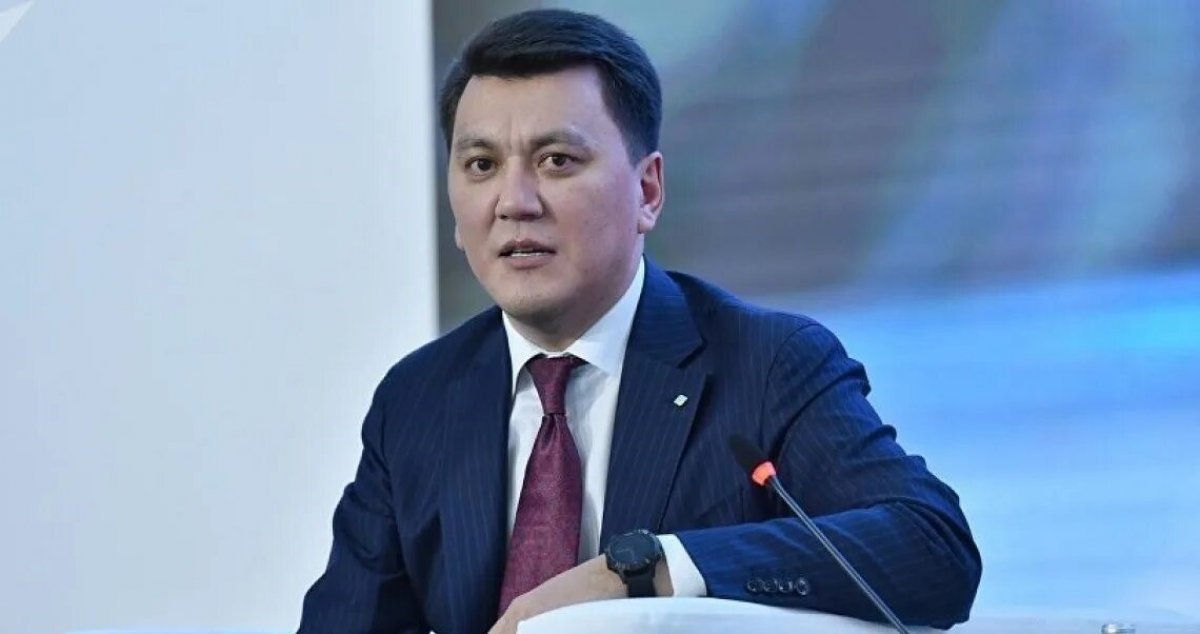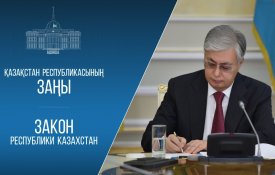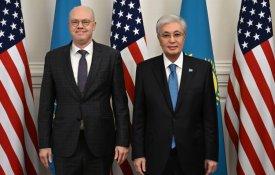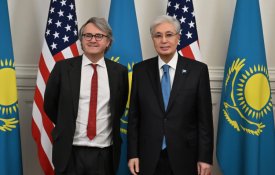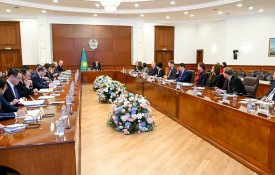
Navigating constitutional amendments
The draft amendments and additions to the Constitution were developed by leading legal scholars and constitutionalists and received a positive conclusion from the Constitutional Council. The draft constitutional amendments are based on the requests of citizens and are being implemented in the interests of the whole society.
All amendments and additions to the Constitution are interconnected and subject to a single goal - to create a legal framework for:
1. the final transition from the super-presidential model to the presidential republic;
2. redistribution of a number of powers;
3. strengthening the role and raising the status of the Parliament;
4. expanding the participation of the population in the government of the country;
5. strengthening mechanisms for protecting the rights of citizens.
The Draft Law of the Republic of Kazakhstan "On Amendments and Additions to the Constitution of the Republic of Kazakhstan" was officially published in the republican print media on May 6.
For an uninitiated person, it may be very difficult to navigate through the numerous amendments, to see the difference between the old and new editions of the Constitution. Therefore, for the convenience of familiarization with these amendments, they are divided into large blocks of amendments and additions, indicating specific paragraphs and articles of the Constitution.
The final transition from a super-presidential model to a presidential republic
The constitutional reform will create an optimal balance of relations between the branches of power and ensure the maximum equidistance of the institution of the presidency.
Article 43 of the Constitution is supplemented by paragraph 3, which establishes that the President of the Republic for the period of exercising his powers should not be a member of a political party. Based on the same logic, this ban is extended to chairmen and judges of the Constitutional Court, the Supreme Court and other courts, chairmen and members of the Central Election Commission, the Supreme Audit Chamber of the Republic (new version of paragraph 2 of Article 23 of the Constitution).
The result will be an increase in political competition, the creation of equal conditions for the development of all political parties, independence and impartiality in decision-making.
The Head of State must act as an unshakable guarantor of equal opportunities for all citizens. Therefore, Article 43 of the Constitution is supplemented by paragraph 4, according to which close relatives of the President are not entitled to hold positions of political civil servants, heads of subjects of the quasi-public sector.
At the suggestion of the members of the Working Group, the norms on the right of the First President to be elected more than twice in a row (new version of paragraph 5 of Article 42 of the Constitution) and paragraph 4 of Article 46 of the Constitution, which stated that the status and powers of the First President are determined by the Constitution and constitutional law, are excluded.
Article 91 of the Constitution excludes the norm on the status of the First President as the Founder of independent Kazakhstan (new version of paragraph 2 of Article 91 of the Constitution).
The result of the constitutional reform should be the expansion of the powers of local state administration and self-government, carried out by local representative and executive bodies responsible for the state of affairs in the respective territory.
The draft provides for the exclusion of the powers of the President to cancel or suspend, in whole or in part, the acts of akims of regions, cities of republican significance and the capital (new version of subparagraph 3) of Article 44 of the Constitution).
It also provides for the exclusion of the President's powers to dismiss akims of districts, cities, rural districts (new version of paragraph 4 of Article 87 of the Constitution).
The procedure for acquiring powers by akims of regions, cities of republican significance and the capital is changing significantly.
According to the new wording of paragraph 4 of Article 87 of the Constitution, they will now be appointed by the President with the consent of deputies of maslikhats located in the region, or deputies of maslikhats of cities of republican significance and the capital, respectively. At the same time, the Head of State proposes at least two candidates for voting. The candidate who received the greater number of votes of the deputies who took part in the voting is considered to have received the consent.
Thus, the powers of the President in relation to local authorities are reduced and concentrated on the akims of the regional level, with a significant strengthening of the role of maslikhats.
Redistribution of a number of powers
The presidential quota in the Senate is reduced from 15 to 10 deputies. Moreover, five of them will be proposed by the Assembly of the People of Kazakhstan (new version of paragraph 2 of Article 50 of the Constitution).
The powers of the Senate are supplemented by the right to approve candidates submitted by the President of the Republic for the positions of chairmen of the Constitutional Court and the Supreme Judicial Council (new editions of subparagraph 4) of Article 44, subparagraph 2) of Article 55, paragraph 4 of Article 82 of the Constitution).
In general, the institute of constitutional control is being modernized with the establishment of the Constitutional Court (instead of the current Constitutional Council).
The Constitutional Court will consist of 11 judges (the current Constitutional Council consists of 7 members). Its composition is formed as follows: 6 judges are appointed by the Parliament (3 judges each by the Majilis and the Senate), 4 judges are appointed by the President. The Chairman of the Constitutional Court, as mentioned above, is appointed by the President with the consent of the Senate (new version of subparagraph 1) of Article 57, subparagraph 7) of paragraph 3 of Article 58, Article 71 of the Constitution).
The Accounts Committee for Control over the Execution of the Republican Budget will be transformed into the Supreme Audit Chamber, the chairman of which will report twice a year to the deputies of the Mazhilis (new version of subparagraph 2) of Article 53, new subparagraph 3-1) of paragraph 1 of Article 56 of the Constitution).
The institution of the “Secretary of State” is being transformed into the institution of the “State Counselor”, which will be engaged in the formation of proposals and recommendations to the Head of State (new version of subparagraph 19 of Article 44 of the Constitution).
Strengthening the role and raising the status of the Parliament
As a result of the constitutional reform, the legislative branch of power will undergo a serious reformatting. As a result, the role and status of the Parliament and its chambers will be significantly strengthened.
As already mentioned, the Senate will coordinate the appointment by the President of the chairmen of the Constitutional Court and the Supreme Judicial Council.
It was also mentioned that the President will appoint not 15, but 10 deputies of the Senate. Moreover, 5 of them - at the suggestion of the Assembly of the People of Kazakhstan (new version of paragraph 2 of Article 50 of the Constitution).
At the same time, the quota of the Assembly of the People of Kazakhstan from the Mazhilis is transferred to the Senate and reduced from 9 to 5 deputies. Accordingly, the total number of deputy mandates in the Mazhilis will decrease from 107 to 98 (new wording of paragraph 3 of Article 50 of the Constitution).
Deputies of the Mazhilis will be elected by a mixed electoral system: by a system of proportional representation across the territory of a single nationwide constituency, as well as by single-seat territorial constituencies (a new version of paragraph 3 of Article 50 of the Constitution). The introduction of a mixed electoral system will make it possible to fully take into account the rights of all citizens and better reflect the interests of voters.
The right to revoke the mandate of the deputies of the Mazhilis elected from a single-mandate territorial constituency is introduced by voters (new version of paragraph 5 of Article 52 of the Constitution). As a result, there will be a significant strengthening of democratic traditions and the establishment of a new political culture based on mutual responsibility and trust between deputies and voters.
The competence of the Mazhilis is expanding, parliamentary control over the quality of execution of the republican budget is being strengthened. To do this, as already mentioned, the Accounts Committee for Control over the Execution of the Republican Budget is transformed into the Supreme Audit Chamber, the chairman of which must report twice a year to the deputies of the Mazhilis (new version of subparagraph 2) of Article 53, new subparagraph 3-1) of paragraph 1 of the Article 56 of the Constitution). This will further strengthen the status of the Mazhilis and the Parliament as a whole.
In order to strengthen the mechanism of checks and balances in the political system and optimize the legislative procedure, it is proposed that the Mazhilis pass laws (previously considered and approve bills), and the Senate approves / does not approve laws (previously the Senate passed laws) (new version of paragraphs 4 and 5 of Article 61 and paragraph 5 of Article 62 of the Constitution).
Constitutional laws will be adopted by the Parliament at a joint session of the chambers in at least two readings (new wording of Article 53 of the Constitution).
A special mechanism for the prompt adoption of laws in exceptional cases is being introduced. Draft laws introduced as a legislative initiative of the Government of the Republic in order to promptly respond to conditions that threaten the life and health of the population, the constitutional order, the protection of public order, and the economic security of the country, are subject to consideration by the Parliament immediately at a joint meeting of its chambers.
For the period of consideration of these bills, the Government of the Republic has the right to adopt temporary regulatory legal acts that have the force of law (addition to paragraphs 2 and 3 of Article 61 of the Constitution).
This mechanism is designed for special life circumstances that require immediate joint coordinated work of the branches of power to overcome especially dangerous threats, is not intended for everyday use and is ensured by the mutual responsibility of the deputies of Parliament and members of the Government.
Expanding the participation of the population in the government of the country
The Basic Law finally and unambiguously fixes the rule that the land and its subsoil, water, flora and fauna, and other natural resources belong to the people. On behalf of the people, the right to property is exercised by the state (new wording of paragraph 2 of Article 1 of the Constitution).
As already mentioned, it is proposed to elect the deputies of the Majilis according to a mixed electoral system: according to the system of proportional representation in the territory of a single nationwide constituency, as well as in single-seat territorial constituencies (new version of paragraph 3 of Article 50 and paragraph 1 Article 51 of the Constitution).
It also becomes possible to revoke the mandate for Mazhilis deputies elected from a single-mandate territorial constituency (new version of paragraph 5 of Article 52 of the Constitution).
Akims of regions, cities of republican significance and the capital will be appointed by the President on an alternative basis (at least two candidates) with the consent of all deputies of the maslikhats of the region/city (new version of paragraph 4 of Article 87 of the Constitution).
Thus, the guarantees of local state administration and self-government, carried out by local representative and executive bodies responsible for the state of affairs in the respective territory, are strengthened.
Strengthening the mechanisms for protecting the rights of citizens
As mentioned earlier, the Constitutional Council will be transformed into the Constitutional Court, which, at the request of citizens, will consider for compliance with the Constitution the normative legal acts of the Republic of Kazakhstan that directly affect their rights and freedoms enshrined in the Basic Law (new version of Articles 71-74 of the Constitution).
The decision to abolish the death penalty at the constitutional level is finally fixed (new wording of paragraph 2 of Article 15 of the Constitution).
The competence, organization and procedure for the activities of the Prosecutor's Office will be determined by the constitutional law (new wording of paragraph 4 of Article 83 of the Constitution). This should strengthen systemic human rights activities and supreme supervision over the observance of the rule of law on the territory of the Republic of Kazakhstan on behalf of the state within the limits and forms established by law.
The norms of the new article 83-1 of the Constitution grant immunity to the Commissioner for Human Rights and guarantees of independence and non-accountability to any other state bodies and officials in the exercise of powers to promote the restoration of violated human and civil rights and freedoms. To do this, he will have the right to apply to the Constitutional Court.
The legal status and organization of the activities of the Commissioner for Human Rights will be determined by the constitutional law.
***
Thus, it can be rightfully asserted that the constitutional reform will expand the participation of citizens in government and ensure real democratization of political processes.
YERLAN KARIN, STATE SECRETARY OF THE REPUBLIC OF KAZAKHSTAN


